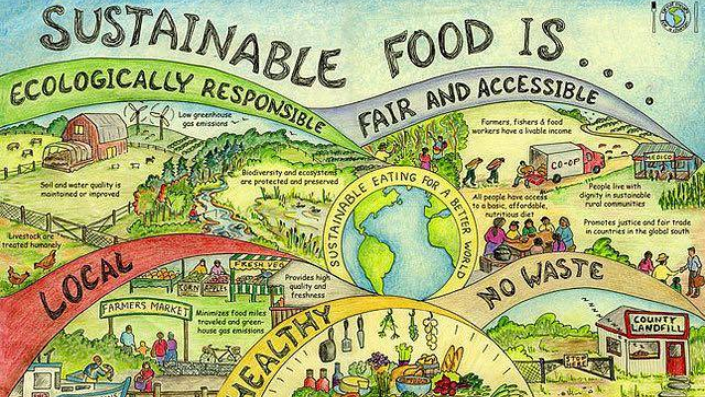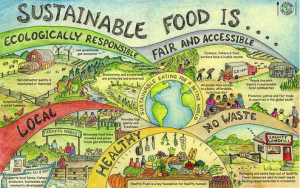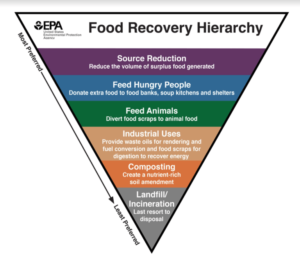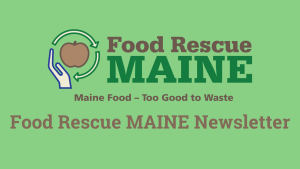
Food Waste is a Social Justice Issue
I was one of the countless Mainers facing food insecurity, feeling guilty for the hunger in my stomach because I knew my cabinets were running bare and I couldn’t afford to replenish them without asking for help.
Food. Full bellies. Balanced, healthy meals to nourish your body and mind. Midnight snacks. Food is something many of us take for granted.
When I was growing up, I never worried that I wouldn’t have food to eat. That concern never crossed my mind until recently. When I was growing up, I understood that money was tight, but I always knew I’d have food to eat. This is not the case for everyone. Roughly 828 million people in the world live in hunger, including 34 million US residents and 140,000 Mainers. This means that 1 in 10 people in Maine experience food insecurity. Food insecurity is defined by Feeding America as “a lack of consistent access to enough food for every person in a household to live an active, healthy life.” As a student researcher at the University of Maine, I learned that nearly half of all college students have experienced food insecurity. We all know someone who is impacted by food insecurity, and we’re all likely to experience it at some point in our lives.
Food Insecurity: A Social Issue
The public health crisis of food insecurity is more than just an issue of empty stomachs. Food insecurity disproportionately affects poor and marginalized communities. It is created and perpetuated by political, socioeconomic, and environmental factors such as insufficient wages and worker protections, flawed health systems and food systems, pollution and climate change, discrimination, inequality, and conflict. Perhaps one of the most startling things to comprehend is that while so many people are going hungry, vast amounts of perfectly good food are being dumped into landfills every single day.
According to Food Rescue MAINE, 40% of food in the U.S. is wasted each year, which amounts to 133 billion pounds of food. This is enough to fill Gillette Stadium more than 700 times. This wasted food is worth more than $160 billion and could feed a significant portion of hungry people, yet 97% of this food waste still ends up in landfills. Now imagine for a moment how it feels to be food insecure while knowing that this much food is wasted.
My Personal Experience with Food Insecurity
During the summer of 2022, I didn’t have to imagine. I was one of the countless Mainers facing food insecurity, and I felt guilty for the hunger in my stomach because I knew my cabinets were running bare and I couldn’t afford to replenish them without help. Imagine eating popcorn for dinner several nights in a row because you can’t afford nutritious food, and it’s the only thing left in your cabinet. Imagine doing this while knowing that millions of pounds of perfectly good food, food that you would have been overjoyed to eat, was now in a landfill. Most of the food we waste in the US never even makes it to people’s plates. This food could feed people. Wasted food food while people go hungry is a social justice issue, and it needs to be addressed as such.
Food Waste: An Environmental Issue
In addition to being a social justice issue, food waste is also an environmental issue. Those millions of pounds of food going into landfills each year don’t just sit there. They emit immense amounts of greenhouse gases and contribute to the climate crisis. Project Drawdown lists food waste as the third most pressing issue that needs to be addressed to mitigate the climate crisis, and it is often stated that ending food waste would be more effective climate solution than ending all carbon emissions from planes. The climate crisis is leading to mass extinction, ecosystem collapse, and accentuating the food insecurity crisis by crippling agricultural industries. The climate crisis, which also disproportionately affects poor and marginalized communities, is putting all of our collective futures at risk, and food waste is contributing significantly to this risk. Wasting food is not only a food justice issue but also a climate justice issue.
Finding Solutions

To combat these food justice and climate justice issues, we must close the gaps in the food cycle and follow the hierarchy of food waste solutions. The food recovery hierarchy ensures that as much food as possible is feeds people and animals, pr is used for energy production and composted- instead of being brought to the landfill. That’s why I decided to work with the George J. Mitchell Center for Sustainability Solutions as a food waste intern. In this program, we focus on the following six food waste solutions:
- Track wasted food
- Rescue wasted food
- Educate people about food waste
- Reduce food surplus
- Encourage food donation
- Divert food waste from landfills.
Food waste and food insecurity are daunting, extensive issues that may seem impossible to solve, but through individual, community, and large-scale efforts, a better future is possible.
And always remember… Maine food is too good to waste.
– Tamra B, Mitchell Center Student Intern
I am a coffee-lover and music enthusiast who loves to be outside, especially for hiking and skiing. In my free time, you can find me reading or playing the piano.

